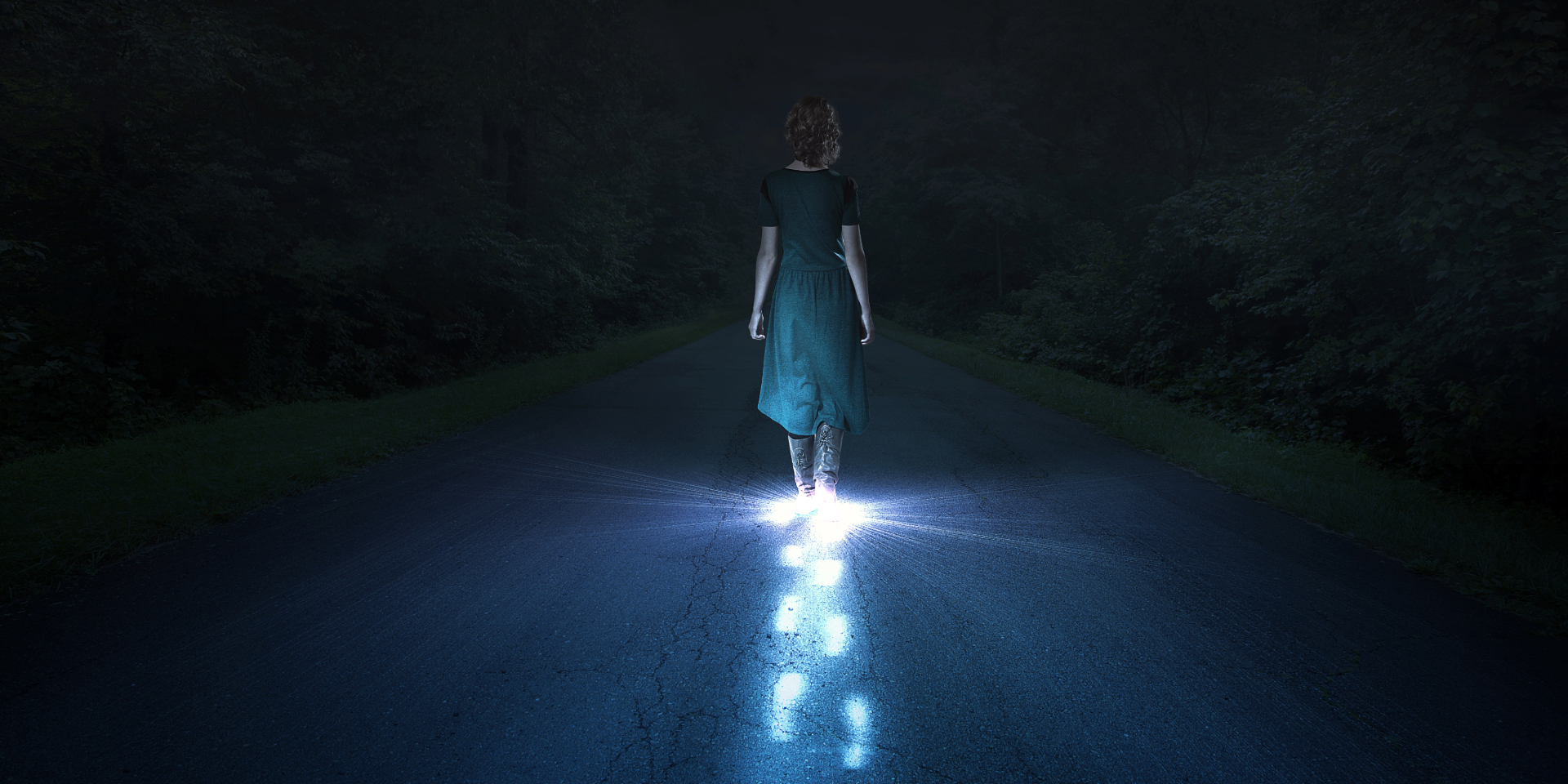Sinking into darkness, after 14 years of enjoying all the spectacles of grace and beauty in which our world is enveloped, can be the beginning of tragedy. Or it can be the moment when you begin to discern, nuance by nuance, the splendour of a reality that healthy eyes so often miss.
Sometimes life surprises us. Either it takes us careening down an unknown road where all our cherished hopes are brutally shattered, or it slams on the brakes unbearably on an impossible road where we feel that pain has become part of our being that we will never be able to shed. In these moments, it is all too easy for the question of the disciples to burst out of our hearts in countless versions: “Lord, do you not care that we are perishing?”
When the illusion of invulnerability is shattered
Reality seems to suggest that He is far away, indifferent to our suffering, and only faith could glimpse what wide-open eyes cannot perceive: that God is right there, and that not caring is foreign to His character. How could He not care, when it is His love for us that has led Him to pronounce the most difficult judgement in the history of mankind? After humanity’s slide down the slippery slope of disobedience, someone had to die—either the guilty one or the innocent One—so that the guilty could have a new chance at life. And God provided the answer by sacrificing the guilt-free One in our place. How can we say that He does not care about us?
There is a plethora of answers to the problem of human suffering, some of them very pertinent. But there is also much that remains unknown, and when faced with suffering, even clear answers tend to become diluted. It’s a mechanism that has been going on for centuries. We may be immune to the suffering that suffocates millions, but when it crosses our path, we want God to remove it. Immediately.
“Speak to the suffering and you will never lack an audience,” Joseph Parker once said. Ruth Graham, wife of the famous evangelist Billy Graham, wrote a book with the poignant title In Every Pew Sits a Broken Heart. Indeed, there are broken hearts in every row of park benches, in every block of flats and in every neighbourhood in every corner of the world. The pain comes in different sizes, but it doesn’t bypass anyone. And it confronts us with the same question: Does God care? Is everything still under His control? Or are we actors in an absurd play unfolding according to a script of endless chaos?
The blessings of a life surrounded by suffering
Anișoara Dinea’s story, as she herself told it in a Baptist church, is one of light and darkness. It is made up of powerful moments that you cannot sit back and watch with the certainty that you know how it will end, because there is another plot (and another possible outcome) just around the corner. It’s not a story that you listen to passively, with your mind racing in many directions, but one that keeps you guessing. It forces you to leave the neutral spectator’s box in search of sound answers about life, God, loss, and blessing. A tangled mosaic of life and death, frailty and strength, darkness and light, dust and eternity.
Anișoara was born into a family that had found its warmth and purpose somewhere in the mountains of Rodnei, the first of a line of 11 children. Her childhood home is a blessed place, where the years pass under the loving care of her parents, amidst the responsibilities and hardships of country life, in the joyful bustle of a place filled with children, but also with guests, prayers and the trust that God is shaping their lives. It is a time when the doors of the house are opened wide to welcome and feed any needy stranger, when prayer meetings become long conferences with the King of Heaven, and when, especially in winter, the rooms fill up overnight with guests, so that sleeping places are prepared on the floor, while a festive air fills the house.
But over the sparkling skies of a happy childhood, the leaden clouds of sickness appear without warning. And then, relentlessly, darkness falls. At the age of 14, Anișoara learns that she will never again see the faces of her loved ones or the letters lazily written on white paper. Not even the light of the cherry blossoms that shimmer white between the hillsides at the first hint of spring. It is the beginning of an arduous journey in which her parents accompany her as best they can, helping her to get used to the old tasks that she now has to carry out in hostile conditions, but which she becomes increasingly adept at, whether it is mowing the fields or bathing her younger brothers. It’s the time when Anișoara is forced to turn the pillow over to go to sleep, after her tears have soaked the rough fabric so similar to her new life. But it’s also the moment when she decides to bind herself more than ever to God, so that nothing can break this special bond.
The years fly by, carrying the weight of other challenges and triumphs. Plunging into the unknown of high school life, fasting as a religious habit that takes on other meanings (the meals she gives up for her classmates brings her an offer to have the daily lessons read to her), unravelling the mysteries of Braille, finishing school with honours, graduating from medical school, getting a job as a massage therapist… And then ten years pass quietly, during which she prays for a husband—a man who can see and who, whatever his disability, looks at God from the same point of view and with the same love as she does.
And since His plans come to pass, even when they seem to go in the opposite direction, God writes their love story over the years, with details of a more intense beauty than Anișoara could have hoped for. Their wedding remains unforgettable: it is a step into the unknown for two young people who unite their dreams and their limitations—he has no legs, she is blind, but they have placed themselves in the hands of the All-Seeing One. Their prayer room becomes the centre of their universe, where the ground is levelled under their knees, for it is there that they meet God in His radiant beauty—the place where they connect with heaven, climbing its steps with hope until the earth begins to pale under the outpouring of light that bursts in from behind the curtain that separates the two realms. These are happy years. A time when, two years apart, healthy daughters are born to them, despite the doctors’ cautious prognoses. And Anișoara has already learnt how to get through it all, day by day, breath by breath, depending on her invisible Helper.
Her husband, Emil, is often away, called away by the needs of the churches he serves. But how can she look after two small children whom she cannot see? How can she tell a spotless nappy from a stained one, except by washing them daily with great effort? How can she take the temperature of her little ones, how can she tell the difference between medicines for them? How can she cope with the frequent checks by the authorities who want to take her children away because they think she is not capable of looking after them? What other way is there but to rely on God in the smallest of details?
The theme of Anișoara’s testimony is that God never abandoned her. Her atypical family was, according to her own testimony, a corner of heaven on earth. Neighbours and friends called them the “happy family” when they walked down the street. And Cristiana, their youngest daughter, remembers all the gestures and words of her parents, who wove together a love story that cannot be put into words. The story of a couple determined to make each other happy, despite all the obstacles. The story of resourceful parents determined to overcome their limitations so that their daughters can have a normal childhood. The story of simple people living in the fiery centre of prayer—and of service to those in need, as Anișoara’s house, like her parents’ in the old days, was open to anyone in need of a kind word and a tasty meal.
Who could have foreseen that in this story of a happy marriage there would be no promising commas, but only one decisive full stop? Only its Author, who, by a decision as unusual as their story, was to let Emil know that his life’s journey was coming to an end. What was unusual was not the illness that was to end his life, but the fact that Emil realised what was about to happen and, with a lifelong trust in his Friend, began to prepare. He entrusted his wife with the documents and information that he had handled alone, he prepared his family, and he shared with the poor the clothes that would no longer be of use to him.
The sudden change in her life shook Anișoara, who had already begun to conjugate the verb for suffering in the past tense, convinced that the hardest part was over. And yet she realised that it was not wise to cling to a past that had faded away, with all its projects and dreams. Her refuge remained the same prayer room, where she was accompanied by her daughters Lavinia and Cristiana, aged 8 and 6, who had already learned to accept one reality—their mother cannot see them and their father will never return—and to transform it into another, encouraging one: that God always sees them. Fatherless, they turn with childlike trust to the One whom the Bible calls the Father of orphans. They look to Him to meet their every need, from firewood to wisdom for their homework, convinced that they will be heard and listened to. “I am not leaving you in the care of just anybody,” their father had said to them as he was saying goodbye to them, “but I am leaving you in the care of God.” And the widow and the little orphans put their trust in God’s ability to meet their every need. “I have never asked for help from people, only from God,” says Anișoara. And she claims that, through a series of simple things and miracles, He has provided for her beyond all expectations.
Happiness and mercy are found in heaven
“It is not under the sharpest, but the longest trials, that we are most in danger of fainting.”—Andrew Fuller
It is in our nature to want to know the destination of a journey, its duration, or where the difficult parts begin (and especially where they end!).
The Dinea family’s story is special precisely because Anișoara was more concerned with understanding the good that God could do in her life in the face of grief than with the causes or duration of her difficulties. The family’s favourite Bible verse (“Your word is a lamp for my feet, a light on my path” – Psalm 119:105) reveals their belief that beyond the unknowns of the road lies a certainty: on a Christian’s path, however dark, the light shines.
The author Max Lucado comments simply and profoundly on a particular Bible verse, tracing its luminous contours through different Bible translations. “Surely your goodness and love will follow me all the days of my life, and I will dwell in the house of the Lord forever” (Psalm 23:6). The author compares the verse to a veritable jewel box in which every word has an intriguing sparkle: “goodness”, “love”, “all the days of my life”, “I will dwell,” “in the house of the Lord”. What’s more, the author’s certainty shines through in every syllable—he doesn’t use words to suggest probability—”maybe”, “it’s possible”, “it might”, “I suppose”—but reinforces his assertion with the enthusiastic “surely” in the introduction. He is convinced of God’s goodness, which will be with him, not intermittently, but every day until the end of his life. No matter how dark or bright the days, God will be there, supporting him with His mercy and with the joy of His presence.
It is with these words that Cristiana describes her mother’s life. “If there was something that kept us strong, it was God’s promise and my mother’s faith,” she confesses, stressing that she never saw her mother’s faith weaken, no matter how hostile the circumstances. Anișoara’s eyes could no longer see the lights of the earth, but she could clearly distinguish the colours of the heavens that had invaded the ordinary little house with its special inhabitants: a single blind mother, two fatherless little girls and God, their invisible Father. A mother who prayed in the most insignificant circumstances, like when she started to make soup. Two little girls who understood that if you consider God your Father, you must represent Him wherever you are. And so they did, because in this divine-human covenant, each party fulfilled its obligations.
Cristiana has a degree in automation and computer science and is working on a doctorate in the same field. Lavinia graduated at the top of her class in medicine and in her graduation speech she mentioned that she owed her achievements to her mother and to God. Their testimony redefines suffering, which is seen as God’s claimed opportunity to show His goodness and glory.
The raw material of their testimony is gratitude to the One who has placed so much grace on the wreckage of their losses.
The radiant lessons of a life lived in darkness
The story of the Dinea family is full of meaning and encouragement that can mark the path of anyone discouraged by the wear and tear of daily life or the untimely blows of tragedy. It proves that blessedness pulsates latently even in the bruised tissues of life. That whenever the contours of reality blur, faith can accept the change of register—from the shattered dreams of the individual to the better plans of God, which never fail. And while this paradigm may be dismissed as naive or outdated, the alternative is no more enticing. After all, you can’t be stuck in a grey zone: either God is still at the helm of history, or you’re on your own in an absurd universe. But the day we erase His image from the equation of life, our existence will no longer aim at prosperity, it will simply struggle to survive, with commendable conscientiousness, but with utter futility.



















